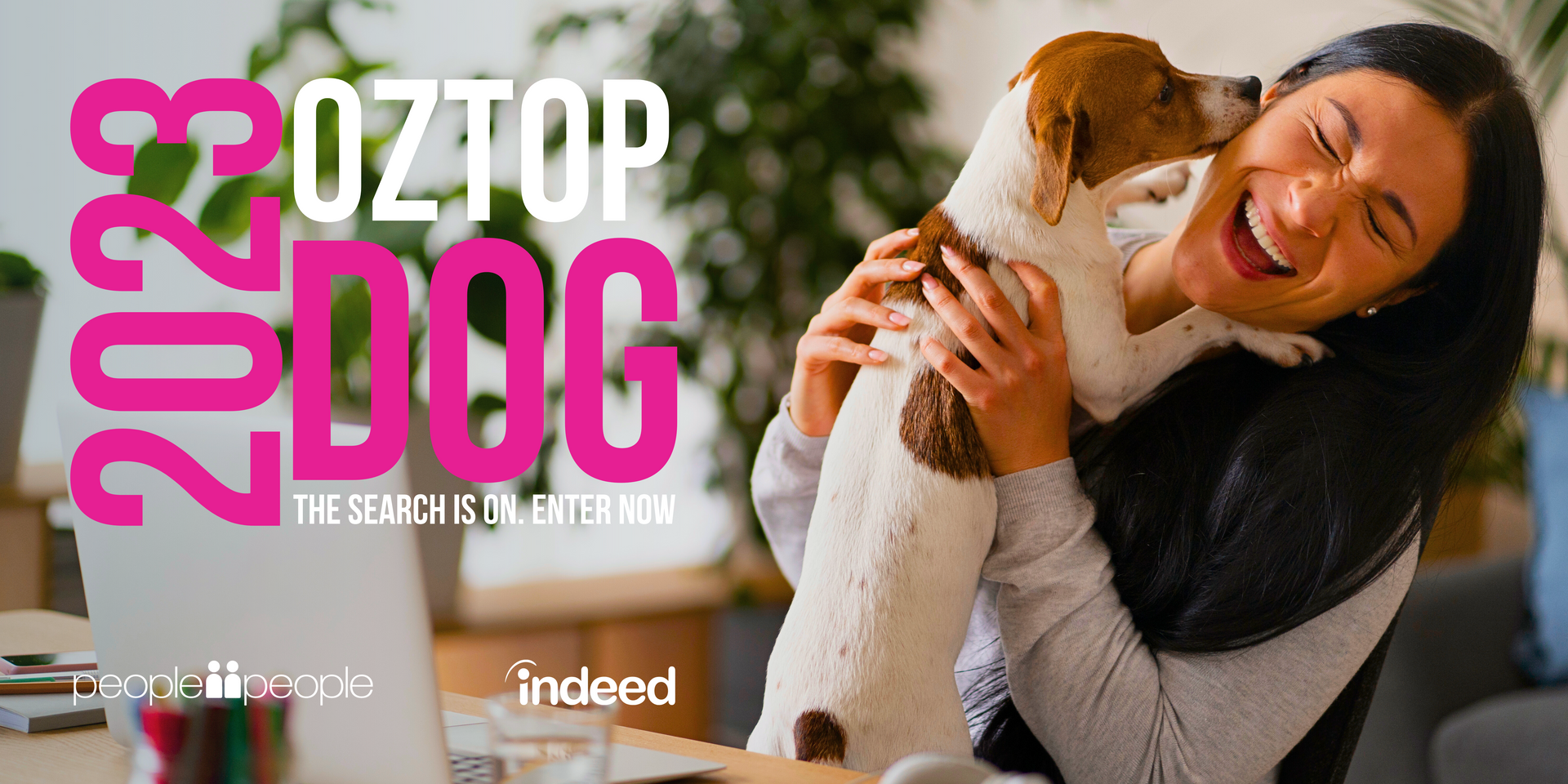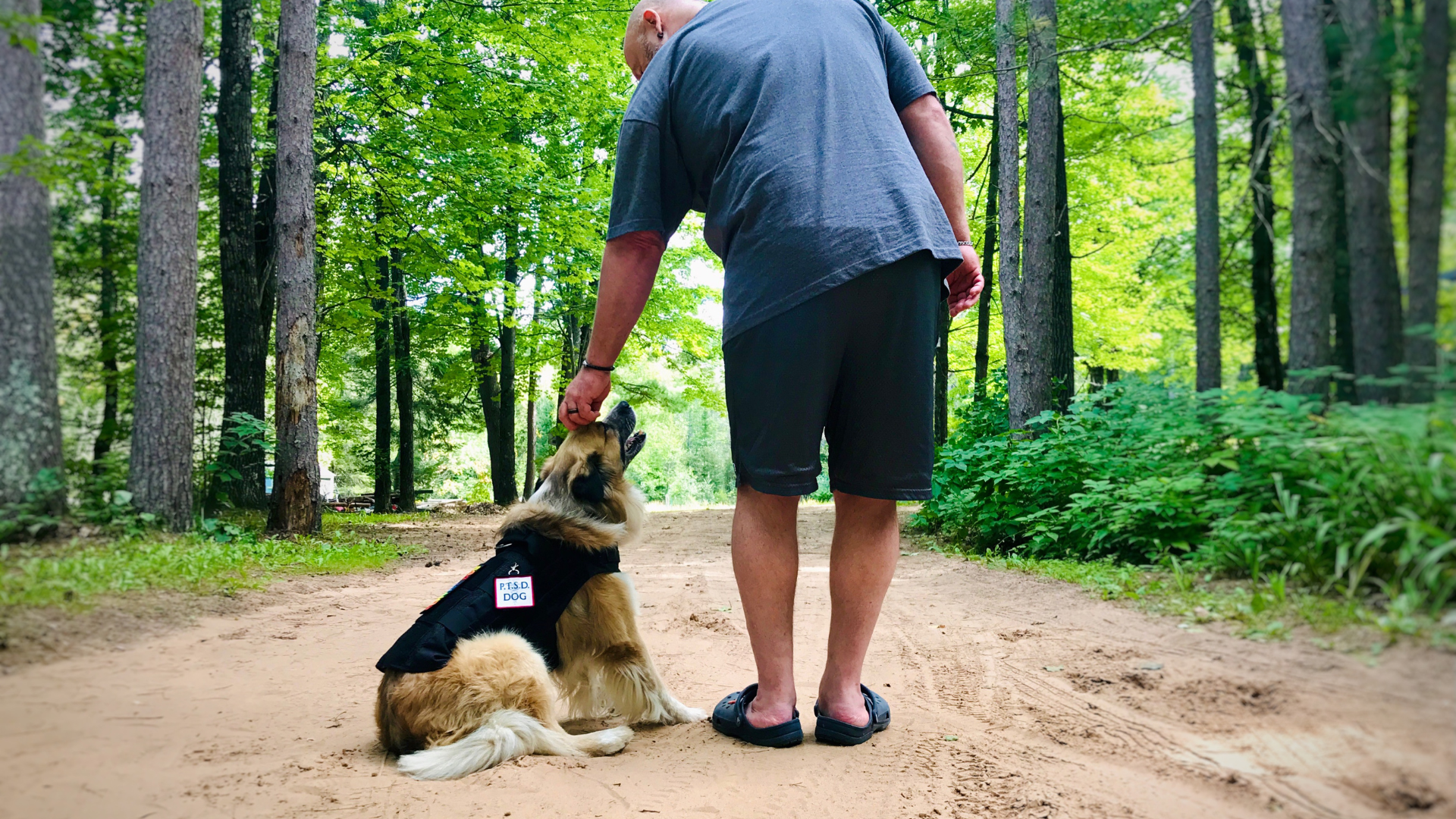How can dogs aid your mental and physical health?
2023 #OZTOPDOG • July 27, 2023

Australia, the search is on.
For its 3rd consecutive year, people2people, along with our headline sponsor Indeed, are proud to announce the return of 2023 #OZTOPDOG. Enter before 13th August 2023 to be in with a chance to win the OZTOPDOG trophy, a prize pack worthy of a top dog, and much more.
Don’t miss out. Get your dog in: www.oztopdog.com.au
Dogs have long been recognised as beneficial companions for dog lovers, providing not only personal joy but also significant improvements to both physical and mental health. In this article, we will explore five ways in which dogs can be a source of therapeutic support during challenging times.
Facilitating personal growth
While we have always believed that dogs are good for the soul, numerous studies and societal experiences have validated their role in providing mental health and developmental support. Therapy dogs, for instance, have shown remarkable abilities to bring hope, happiness, and relief to individuals in need. Dogs have also been found to assist children with reading difficulties by alleviating anxiety symptoms when a trained handler and their canine companion are present. These examples highlight how dogs contribute to mental health and overall development, not just as sources of comfort but also as invaluable companions in various therapeutic contexts.
Offering unwavering companionship
Dogs possess an innate understanding of us, our emotions, and even our unspoken thoughts. They provide a unique form of comfort during challenging times, even when we may not realise we need it. Through their gestures of love, companionship, and support, dogs have the ability to help us navigate through the toughest of circumstances. Whether we fully comprehend it as love or not, it doesn't diminish the impact they have on our emotional well-being. Cherish these moments and exchanges with your beloved canine companion, as they hold a special place in our hearts.
Fostering a sense of purpose
Caring deeply for a dog can greatly benefit our mental health and organisational skills. The sense of purpose that comes with being a dog owner can instil a newfound commitment to meeting the daily needs of our furry friends, often leading to the establishment of a structured routine. Dogs thrive on routine, as it provides them with a sense of security and contentment. Similarly, many humans find comfort and a sense of control in following a consistent routine, which can help alleviate stress and anxiety associated with a lack of control. Embracing a routine and incorporating it into our lives, inspired by our canine companions, can have positive effects on our overall well-being.
Encouraging outdoor activities
Finding time for exercise often proves challenging in our busy schedules, often taking a backseat to other responsibilities. However, when you have a furry family member at home, it becomes essential to prioritise their need for daily outings and physical activity. Dogs require exercise for their mental stimulation and physical well-being. Research has consistently shown that regular exercise not only improves human physical health but also has positive effects on mental well-being, such as lowering blood pressure and releasing endorphins. By fulfilling your dog's exercise needs, you are simultaneously benefiting your own health. Taking your dog out for walks and engaging in activities together not only brings them happiness but also helps you maintain your overall well-being. Remember, engaging in playful indoor activities with your dog, such as tug of war, recall training, or playing fetch in a safe area of your home, can also contribute to your mental and physical health.
Providing daily entertainment
Laughter is indeed good medicine, and dog owners can attest to the daily doses of amusement provided by their beloved furry friends. Dogs have a remarkable ability to entertain us in countless ways, whether through engaging in playful games, showcasing their training achievements, or simply engaging in silly interactions. Instead of resorting to passive entertainment options like television, radio, or endless social media scrolling, consider spending thirty minutes actively interacting and playing with your dog. You are bound to derive as much joy from these interactions as they do.
Find the job you love I Find the right talent
Get in touch with people2people
Australia
I United Kingdom
In business since 2002 in Australia, NZ, and the United Kingdom, people2people is an award-winning recruitment agency with people at our heart. With over 12 offices, we specialise in accounting and finance, business support, education, executive, government, HR, legal, marketing and digital, property, sales, supply chain, and technology sectors. As the proud recipients of the 2024 Outstanding Large Agency and Excellence in Candidate Care Awards, we are dedicated to helping businesses achieve success through a people-first approach.
Recent articles









